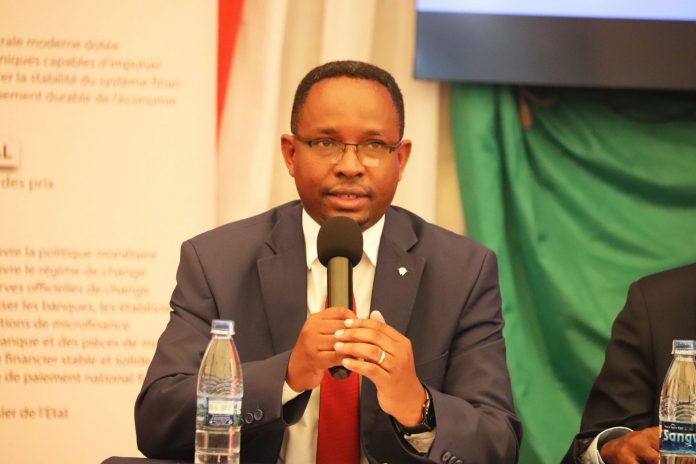
Professor Salomon Nsabimana is a 48 year old macro economist, lecturer at the University of Burundi, a consultant and among the experts that drafted the Burundi National Development Plan 2018-2027.
He spoke to Burundi Times’ Joella Nichiteretse on what the country should implement in meeting the Competition Policy Protocol of the African Continental Free Trade Area (AfCFTA).
What does the government needs to do so as to meet the internationalization of its products?
Burundi Government needs to invest in reinforcing structures which are in charge of standardization, product certification and the control of the quality. Acquire its accreditation at the international level, this will allow recognition of our products at the international market. Besides, the government will have to analyze the business climate improvement compared to the prerequisite for production such as electricity and the quality of infrastructure.
What is the role of the private sector in this?
Economic operators must invest in technology and therefore buy modern equipment to improve the quality and the quantity of their products. In other words, modern technologies reflect mass production but also produce quality goods.
Private sector must also invest in the skills of their human resources. This would save them from importing technology and human resources. In other words, investors will be forced to import technology without having a technician. The private sector will be confronted with competition linked to the cost of production, the cost difference will bound Burundi to not being competitive.
What are the major/ key challenges on ground so far?
Burundi essentially exports tea and coffee, the main challenge is to produce goods which can be exported. In other words Burundi has to be able to produce goods which meet the demand of these AfCFTA country members.
To a country which mainly exports tea, coffee and minerals, at this level it is not obvious that the above products will be sold on the African soil that is why Burundi must seek to make an effective diversification of exportable products by investing in the agro-food industry to produce goods which are competitive.
It is therefore necessary to develop an industry which respects international norms and standards so that products manufactured in Burundi are accepted once exported to these countries.
These a million dollar investments, what could be the way forward for the country?
Burundi government and private sector must combine their efforts to improve the competitiveness through their quality. It should be noted that there is a particular emphasis on the quality of our products. Burundi would not venture while thinking it would be competitive through the quantities it would have produced. For instance, Burundian fruits are reputed to have good flavors, for that very reason it is necessary to produce juice of the best quality by all means because if the county focuses on the quantity it will always be drowned by what will enter in the country. Burundi must support the processing industries, Burundi industries are based on the agriculture value addition. The government needs to increase the standard and the capacity of Burundi Bureau of Standards (BBN) in terms of infrastructure, equipment and staff so that this structure has the means to analyze the quality of the products manufactured by the country and this in relation to international standards but also its accreditation at the international level, this will allow recognition of our products at the international market.
When achieved or not what are the results to the country?
I am surprised that all this is not done because it is also a question of resilience. The country would have been left open to foreign products. Local businesses would be forced to disappear because they will be exposed or faced with very strong competition in quantity and quality. For example, if our population consumes imports following their aspirations for quality and quantity, our businesses will therefore find themselves forced to close because they would no longer be competitive. For that very reason and so as to benefit from this free trade area, it is necessary to invest in the business climate, the production in large quantities but above all in the production of high quality goods which meets the international standards.
Additional information: Burundi became the 38th out of 54 members of the African Union States to deposit its ratification instrument to the AfCFTA on 26 August 2021.
However, despite the fact that the African Continental Free Trade Area (AfCFTA) was aiming to increase intra-African trade by 52% until 2022 (importance of regional integration in the development strategy), the July 2022 African Development Bank Institutional Support Project to the AfCFTA for its effective implementation acknowledges that the continent has the lowest ever intra-regional trade in the world at less than 18% compared to Latin America, Asia and Europe with intraregional trade at 22%, 50% and 70% respectively.
